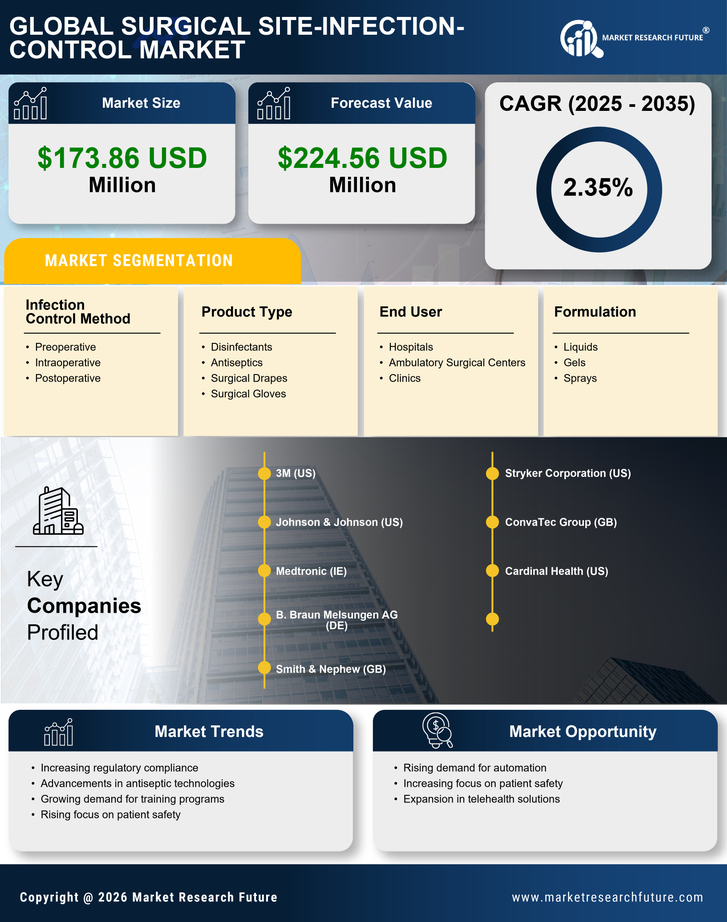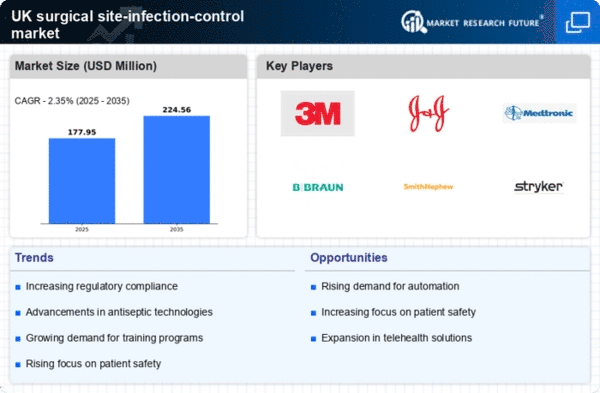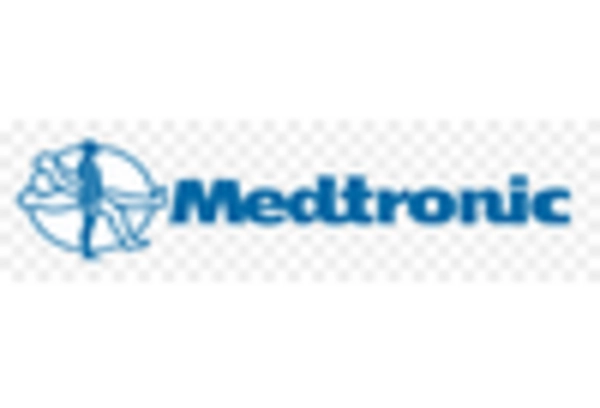Rising Incidence of Surgical Procedures
The increasing number of surgical procedures in the UK is a primary driver for the surgical site-infection-control market. As the population ages and the prevalence of chronic diseases rises, more individuals require surgical interventions. According to the National Health Service (NHS), elective surgeries have seen a notable increase, with over 4 million procedures performed annually. This surge necessitates enhanced infection control measures to mitigate the risk of surgical site infections (SSIs). The surgical site-infection-control market is thus poised for growth as healthcare facilities invest in advanced sterilization technologies and protocols to ensure patient safety and compliance with health regulations.
Growing Awareness of Infection Prevention
There is a heightened awareness regarding the importance of infection prevention in surgical settings, which significantly impacts the surgical site-infection-control market. Educational campaigns and training programs aimed at healthcare professionals emphasize the critical nature of adhering to infection control protocols. The UK government has implemented initiatives to promote best practices in surgical environments, leading to a potential reduction in SSIs. This awareness translates into increased demand for infection control products and services, as hospitals and surgical centers strive to enhance their standards and protect patient health.
Technological Innovations in Sterilization
Technological advancements in sterilization and disinfection methods are transforming the surgical site-infection-control market. Innovations such as automated sterilization systems and advanced antimicrobial coatings are becoming increasingly prevalent in surgical settings. These technologies not only improve the efficiency of infection control measures but also enhance the overall safety of surgical procedures. The market is witnessing a shift towards more sophisticated solutions, with investments in research and development aimed at creating more effective products. As hospitals seek to adopt these innovations, the surgical site-infection-control market is likely to experience substantial growth.
Regulatory Framework and Compliance Standards
The regulatory landscape surrounding infection control in surgical settings is evolving, which has a direct impact on the surgical site-infection-control market. The UK government and health authorities have established stringent guidelines to ensure that healthcare facilities adhere to best practices in infection prevention. Compliance with these regulations is essential for hospitals to maintain accreditation and avoid penalties. As a result, there is an increasing demand for products and services that help facilities meet these standards. This regulatory pressure drives investment in infection control technologies and practices, thereby propelling the market forward.
Economic Factors Influencing Healthcare Spending
Economic conditions in the UK play a crucial role in shaping the surgical site-infection-control market. With the healthcare sector receiving substantial funding from the government, there is a focus on improving patient outcomes and reducing healthcare costs associated with SSIs. The financial burden of treating infections post-surgery can be significant, prompting healthcare providers to invest in effective infection control measures. As hospitals allocate budgets towards enhancing their infection prevention strategies, the surgical site-infection-control market is likely to benefit from increased spending on relevant technologies and training.

















